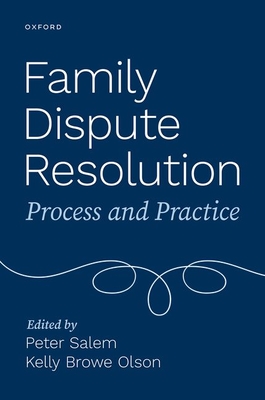
description
e systems in the United States and elsewhere have evolved from a predominant adversarial approach focused on litigation to the significant integration of more collaborative, settlement-oriented approaches, especially mediation. In Family Dispute Resolution: Process and Practice some of the field's leading practitioners, researchers, teachers, and policymakers provide an overview of the modern family dispute resolution processes designed to help separating and divorcing parents make decisions about the future of their families. Chapters in this book address the growth of divorce mediation and other specialized processes including parenting coordination, arbitration, child-inclusive mediation, and online dispute resolution. They describe how to work with families experiencing issues including domestic violence, high conflict, substance misuse, and the lack of legal representation. Case management initiatives and special issues, including social science research and conflicting standards of practice, are also explored. Family Dispute Resolution provides a wide-ranging look at contemporary family dispute resolution processes and is essential reading for everyone interested in learning more about working with separating and divorcing families, including professionals, and law and graduate students.
member goods
No member items were found under this heading.
Return Policy
All sales are final
Shipping
No special shipping considerations available.
Shipping fees determined at checkout.







